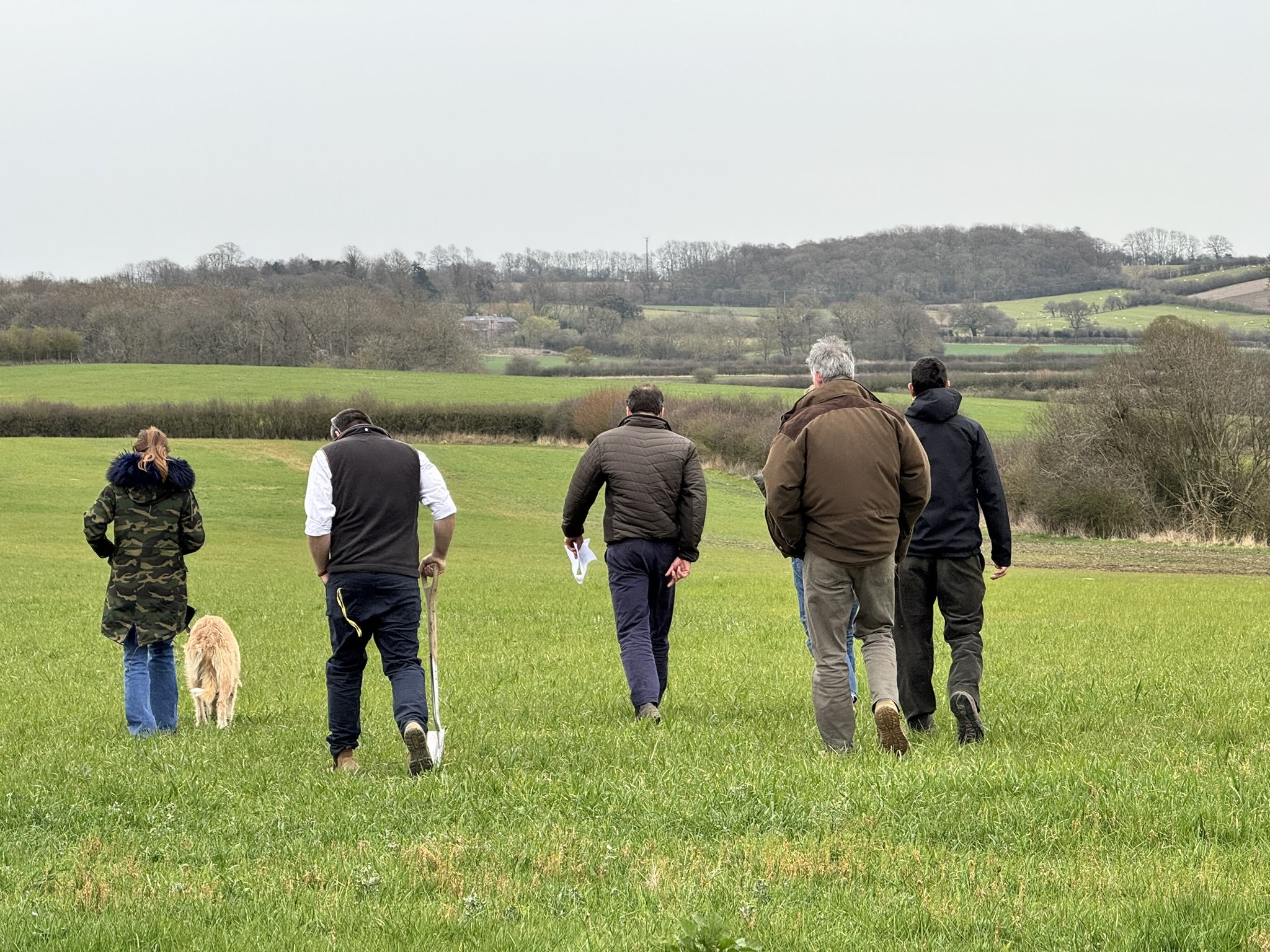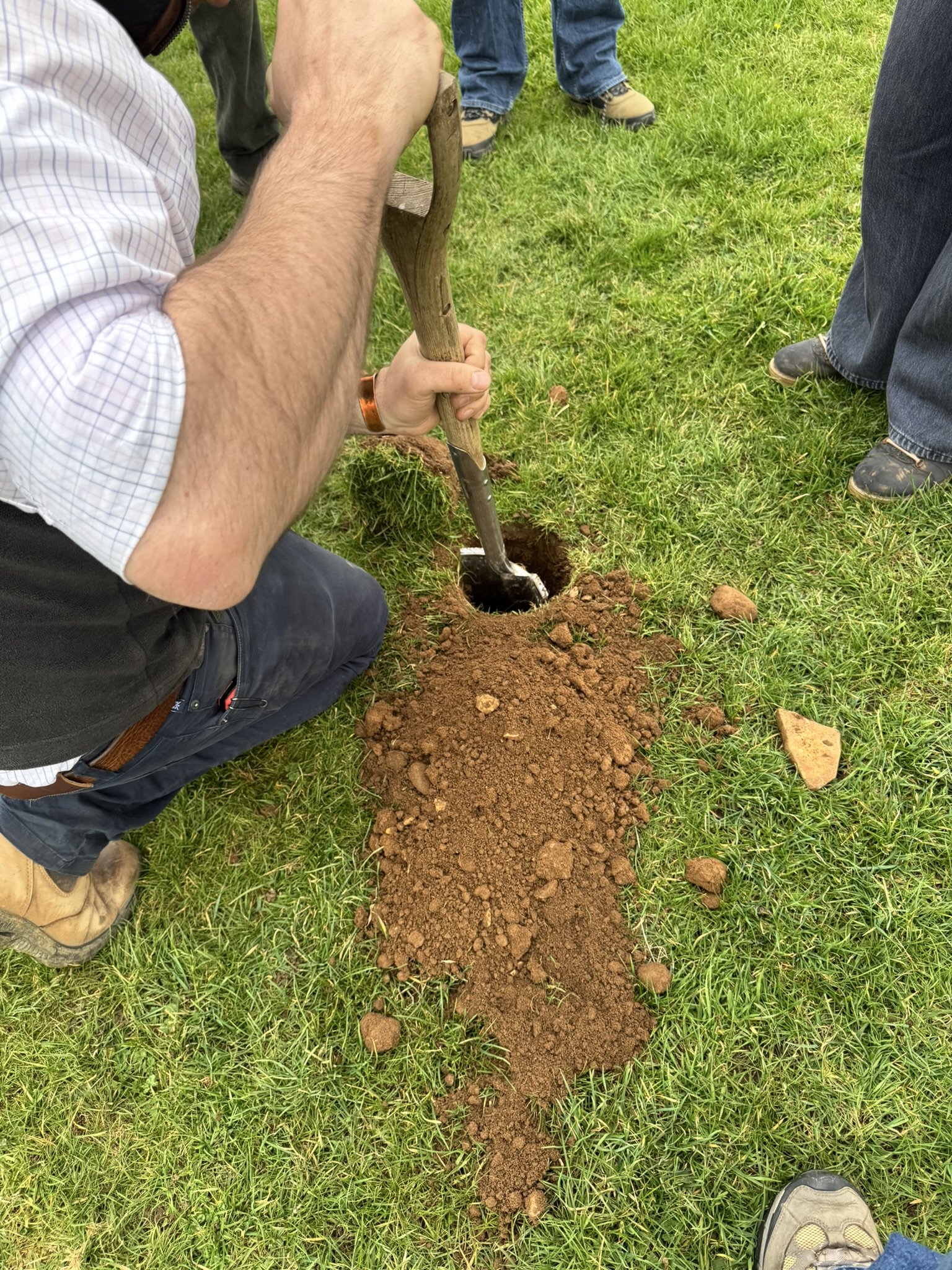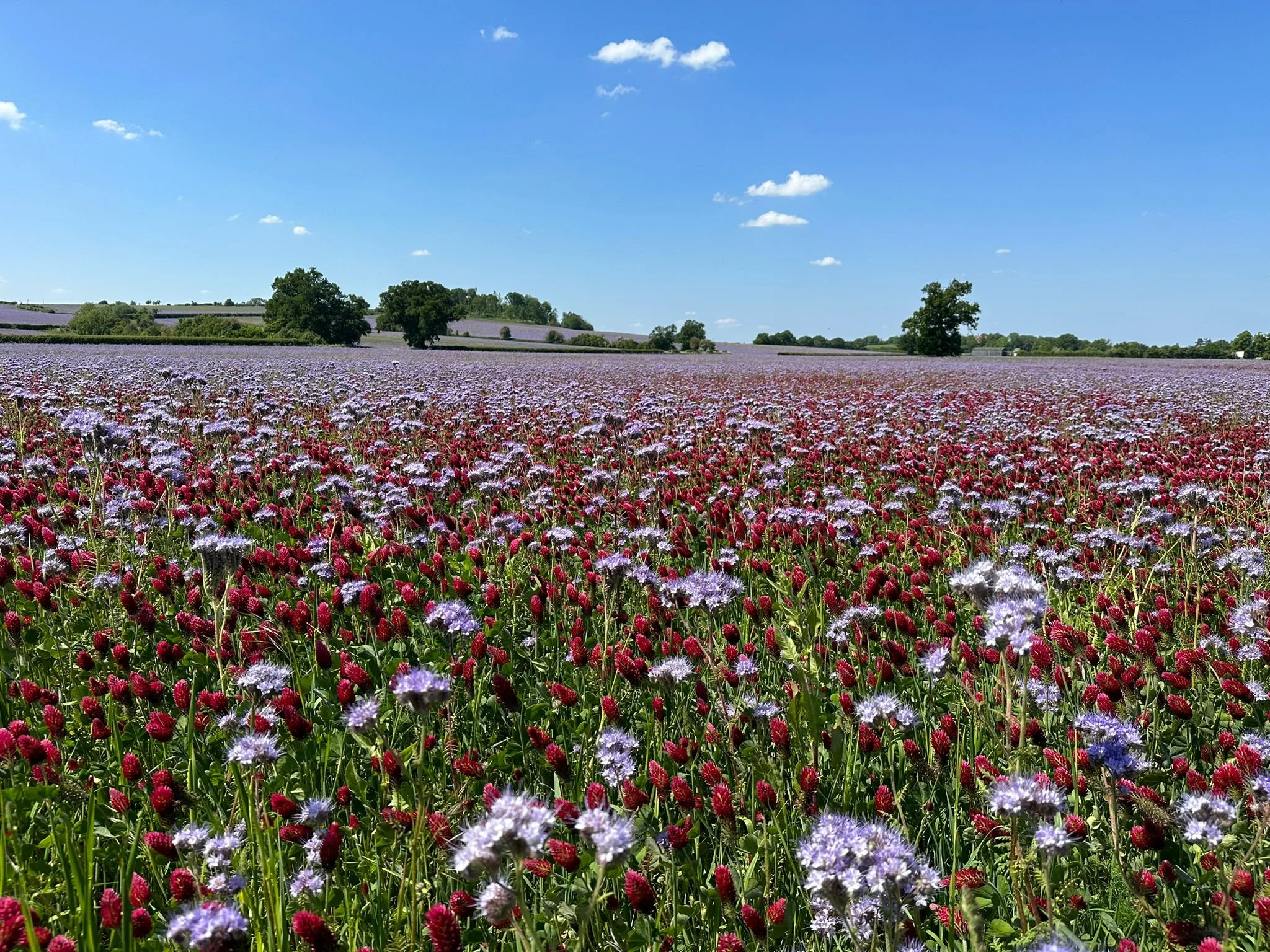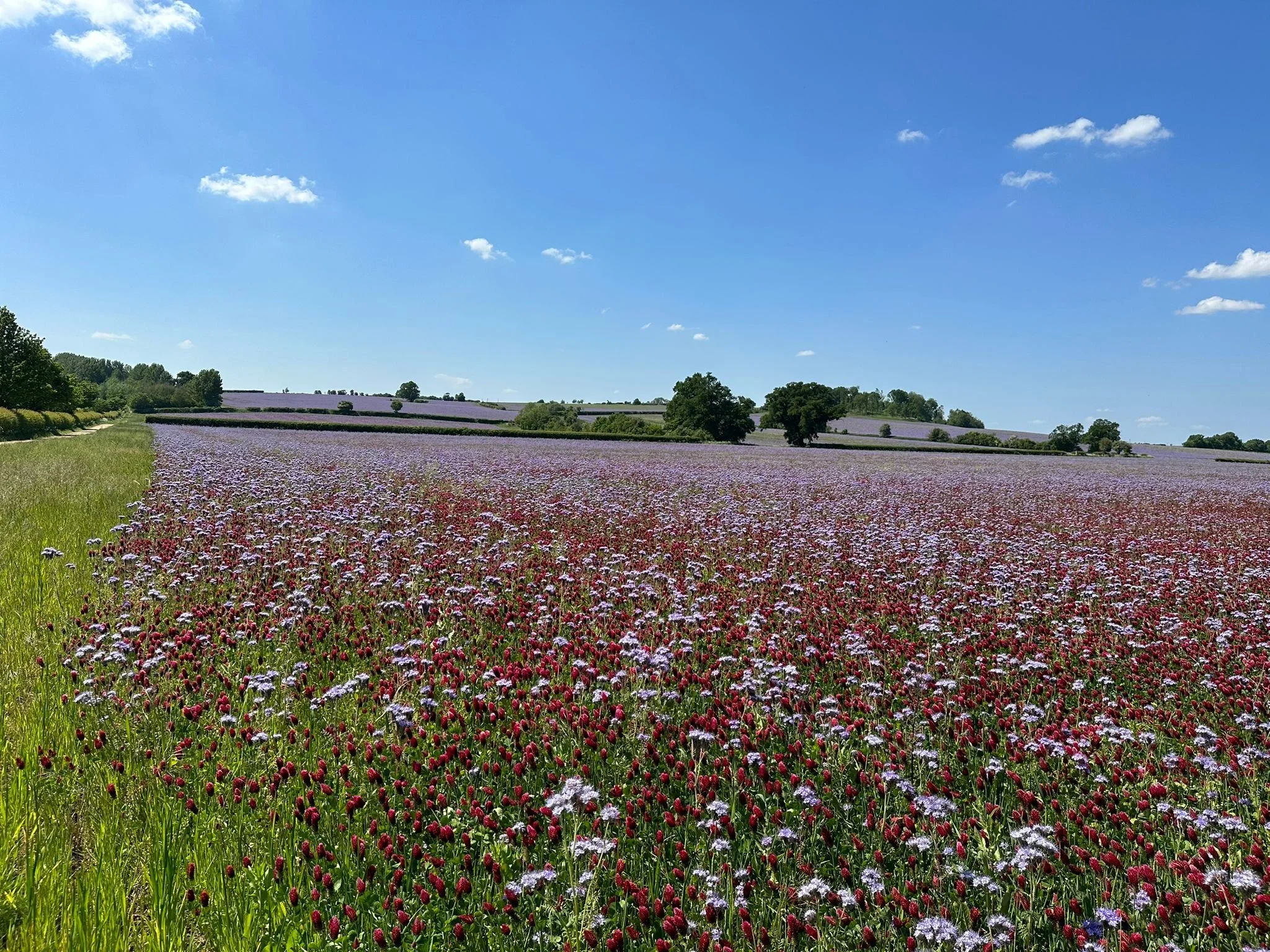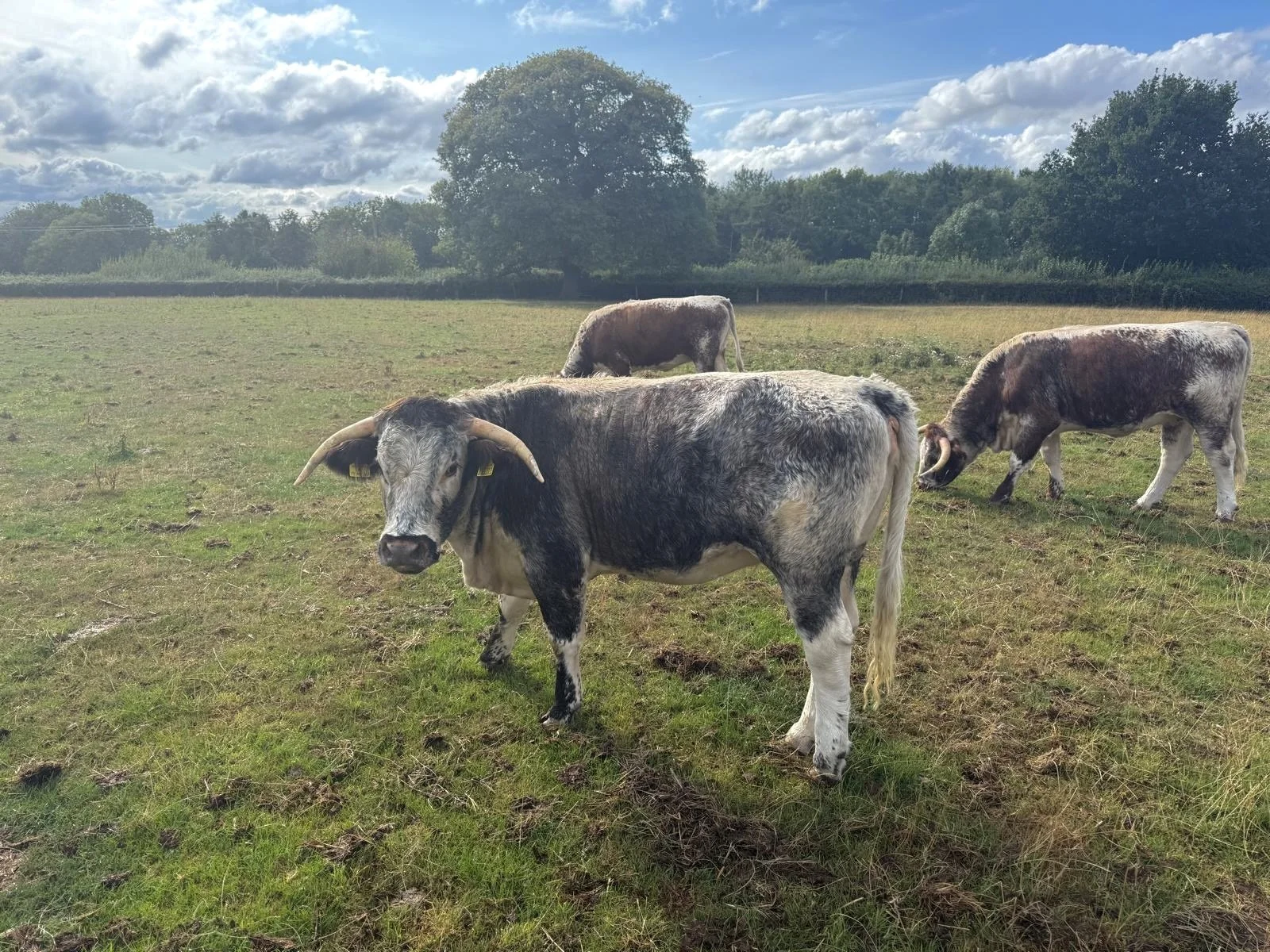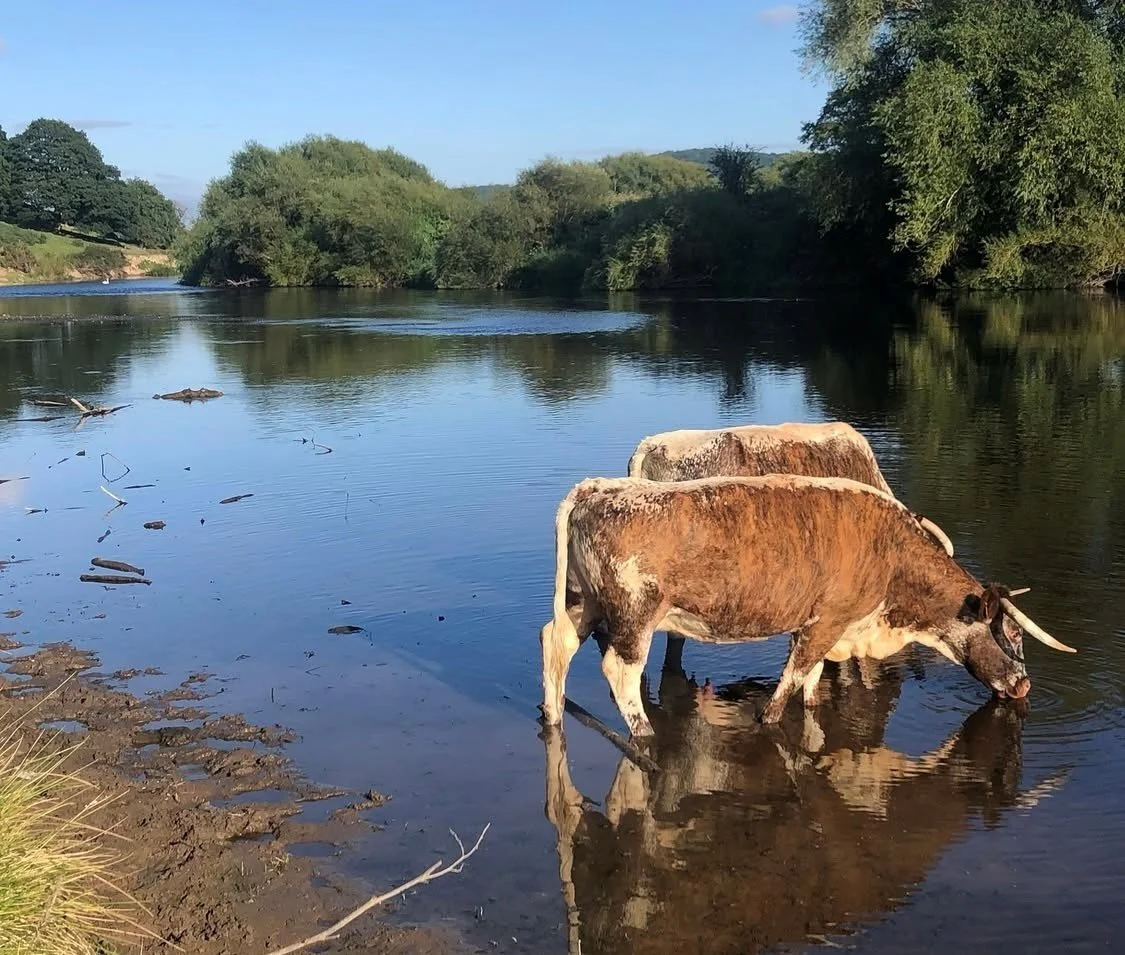HOME FARM
Proud Winner of Best Green Business 2025
Recently, for the first time in a generation, Alscot Estate had an opportunity to consider its long-term land use strategy. This comes at a time where the agricultural transition in England, alongside a broader political agenda of tackling environmental crises, means that rural land management is now focused not only on quality food production, but also on environmental provision and social value.
As a result, Alscot’s ambition is to farm in a regenerative manner, and in September 2024, we began farming our in-house agricultural land of 715ha, regeneratively for the first time in decades.
In its broadest terms, regenerative agriculture refers to an approach that seeks to work with natural systems to restore and enhance the biodiversity, soil fertility and ecosystem service provision (such as carbon sequestration and water retention) of farmed land.
Regenerative agriculture aims to reverse the degradation of soils, focusing on rebuilding soil organic matter (SOM). Minimising soil disturbance and building up soil organic matter fixes carbon within the soil. Under regenerative models, as soils increase in fertility their water holding capacity also increases, thereby building the natural, biological productivity of the land and encouraging species growth. On the other hand, if land is intensively cultivated, it releases carbon into the atmosphere and water run-off is more frequent. Regenerative agriculture is, therefore, being proposed as a key solution to feeding growing populations, while also tackling climate change and the increasing environmental risk.
Home Farm is managed using regenerative, organic, and sustainable practices under the Government’s Sustainable Farming Initiative (SFI). This program requires a five-year commitment with a min two-year conversion process, ensuring strict adherence to sustainable farming guidelines. The conversion process, designed to produce nutrient-rich animal feed, is regenerating the land - improving the soil structure and quality, and laying the foundation for future organic food production, including heritage wheat and vegetables.
Baseline Surveys
To effectively monitor, manage and enhance the land, we have conducted baseline surveys and analyses with independent professionals in the following areas:
Soil - Measuring and recording nitrogen, phosphorus, potassium, organic matter levels, soil texture/structure, and water infiltration/retention. Comparative soil surveys are also conducted on inorganic soil elsewhere on the Estate.
Birds - Seasonal surveys (winter, breeding, and summer) monitor bird populations and species diversity.
Plant Life - Arable and grassland surveys document the presence and diversity of plant species.
Hedgerows - An assessment of all hedges has been carried out to evaluate the hedgerows ecological condition and importance, recording height, width, species composition and associated features such as standard trees and ditches.
FWAG (Farming & Wildlife Advisory Group) Survey - This wasa preiminary survey to identify areas of biodiversity growth that includes: scrubland, open habitat mosaics, how to keep the river cool, new woodland planations to create wildlife corridors and to identify potential flood risk areas.
These surveys will continue to track improvements and ensure accountability.
Land Management Year 1 (Sept 2024 to Aug 2025)
Crops
300 ha herbal leys, 200 ha legume fallow, 10 ha wild bird seed plots, 50 ha temporary grass leys, 2 ha species-rich grassland and the remaining areas are permanent pastureland.
To follow in dormant season 2025 - 50 ha woodland (to be established in 2025, with 8,000 broadleaf trees planted.
Benefits of Herbal Leys - Herbal leys improve soil fertility, structure, and water retention while increasing organic matter and benefiting animal health. They also support self-worming and high protein conversion rates. The selected species are based on thorough land assessments.
Legume Fallow Composition: 25% Sainfoin, 20% Lucerne,12% Crimson Clover, 10% Alsike Clover, 10% White Clover, 15% Red Clover, 8% Sweet Blossom Clover.
Half of the legume fallow cut for composting and reapplied to the soil, while the other half will remain to enhance organic matter.
Grass
6m-wide grass margins around fields help manage water runoff and provide habitats for wildlife, including ground-nesting birds and wetland species. Species-rich grass meadows will support birds, bees, butterflies, moths, and other insects. Leaving the grass cutting as late as possible is designed to assist pollinators and ground nesting birds.
Existing Trees and Hedge Rows
SFI hedge cutting rules emphasize leaving a two-thirds length of hedges uncut each year or managing them on a three-year rotation. A 2-meter buffer strip on both sides of hedgerows is created within this zone where no cultivation or chemicals are allowed, these buffer strips to provide pollen, nectar, and berries for wildlife. The cutting height and width will be increased incrementally with each cut to encourage height and width in the hedge. New hedges will be created and existing ones enhanced.
Cricket Bat Willow Nursery
Eight mature willow trees were harvested, producing 800 todds (cuttings) for planting. It takes about four years for todds to establish before further cuttings can be harvested and replanted, with full maturation taking approximately 15 years.
Living Lab
We are actively collaborating with leading organisations and researchers to explore the potential of a Living Lab project. This will provide valuable evidence on the wider impact of soil health on society. We are engaging with specialists in soil and sustainable earth sciences, bringing together experts from natural and social sciences, engineering, arts, health, and business. This interdisciplinary approach is key to driving debate, fostering innovation, and addressing global sustainability challenges.
Land Management Year 2 (Sept 2025 to Aug 2026)
Longhorn Cattle
On 2nd Oct we introduced a herd of longhorn cattle to graze our natural grasslands and herbal leys — a key element in restoring soil health, supporting biodiversity, and improving overall land resilience. Our first small herd was selected and purchased from pedigree breeder Archie Corrie of Leighton Farm, Shropshire. Joining us; In calf is our Matriarch, Unity with her heifer calf Zabrina, along with three in-calf heifers — Xola, Xeronema, and Ximena — all aged between 26 and 28 months. These pedigree cattle will not only play an important ecological role on the land but will also form part of our longer-term ambition to produce organic food, grown and reared in harmony with nature.
Longhorns use their tongues and horns to graze, which creates a coppicing effect on trees and shrubs, promoting plant diversity and managing scrub. As a primitive breed, they are known for their ability to thrive on low-input, grass-fed diets and adapt to naturalistic living. By grazing and consuming plants, Longhorns help build soil carbon levels, while their manure acts as a natural fertilizer, enriching the soil. Their docile nature makes them people-friendly, a key consideration for farmers and conservationists. They are also important vectors of seed dispersal, transporting seeds on their hooves and fur and through their gut, which increases plant diversity in a landscape.
Birds
Both a Winter Bird Survey and a Breeding Bird Survey were conducted. 30 birds on the Green species list, 26 birds on the Amber species list and 16 birds on the Red species list were identified at Alscot during the survey dates. See full list.
Grazing - Organic Sheep
We’re grazing our SFI land with organic sheep – working in partnership with Daylesford Organic and other local farmers. Daylesford has provided 700 organic Lleyn sheep to graze between October and December across 650 acres of overseeded Alscot land, laid with herbal leys.
This approach not only supports soil health and biodiversity, but also contributes to the wider goal of sustainable and organic food production, which we believe is essential for healthy living.
Trees and Hedge Rows
Tree planting in the Grove has begun. Overall in dormant season 2025-2026 we are planting 8,000 broadleaf trees of various species. These new trees will help maintan the landscape, provide shelter and habitats for wildlife and capture carbon.
1,250m of new mixed-species hedgerows planted (hawthorn, blackthorn, dogwood, hazel, holly, guelder rose) to create wildlife corridors, shelter belts, and food sources. Native fruit trees (plum, pear, apple) to be incorporated. Most of the hedgerows are cut bi-annually in line with SFI rules, however, we intend to leave the roadside hedge cutting as late as possible to assist the birds with winter food i.e. berries and other fruits, yet remaining conscious of our H&S obligations.









